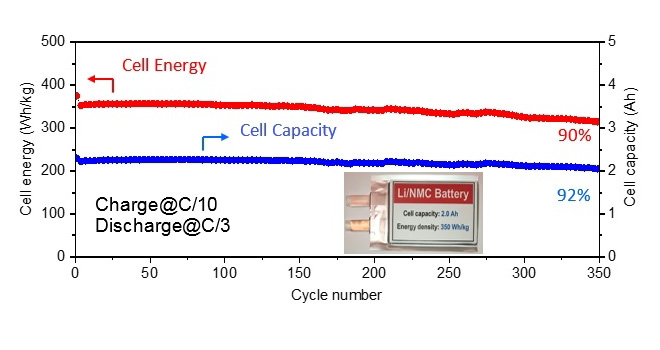Launched in 2017, the Battery500 Consortium is a multi-institution program working to develop next-generation lithium metal anode cells delivering gravimetric energy density of up to 500 Wh/kg. The Battery500 team is composed of scientists and engineers from four national laboratories and five universities. Two of the researchers on the team, Professor Stanley Whittingham of Binghamton University and Professor John Goodenough of the University of Texas at Austin, received the 2019 Nobel Prize in Chemistry for their work on Li-ion batteries.
In the first two years of this program, the consortium has made significant progress in developing novel cell materials and integrating these materials into industry-relevant pouch cells. At the beginning of the program, a Li-metal pouch cell delivered 300 Wh/kg but only cycled approximately 10 times. The team has increased that energy density to 350 Wh/kg and extended the cycle life to more than 350 cycles. Specifically, they developed new electrolytes with enhanced stability against Li-metal, optimized the use of thick cathodes against a thin lithium foil, and applied cell-stack pressure to extend cycling life.

Recent research on even thicker cathodes and more stable electrolytes shows a path to a 500 Wh/kg cell. Current focuses include increasing rate capability and extending cycle life.
Source: DOE


















































































